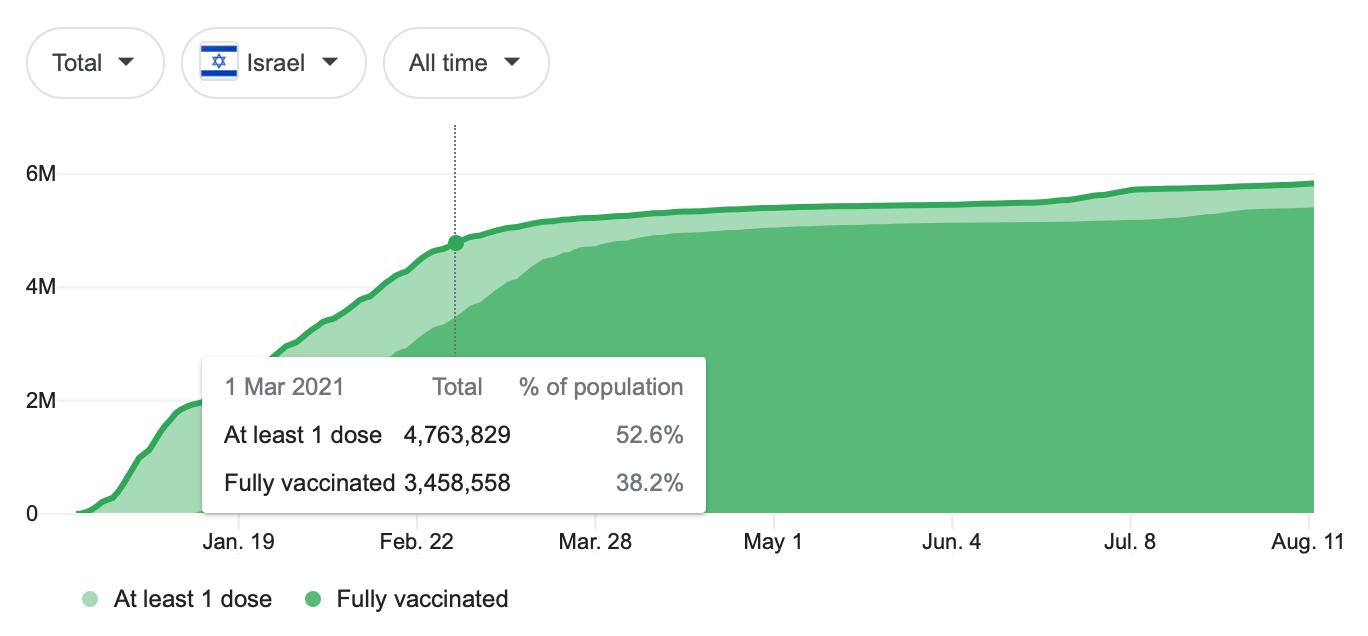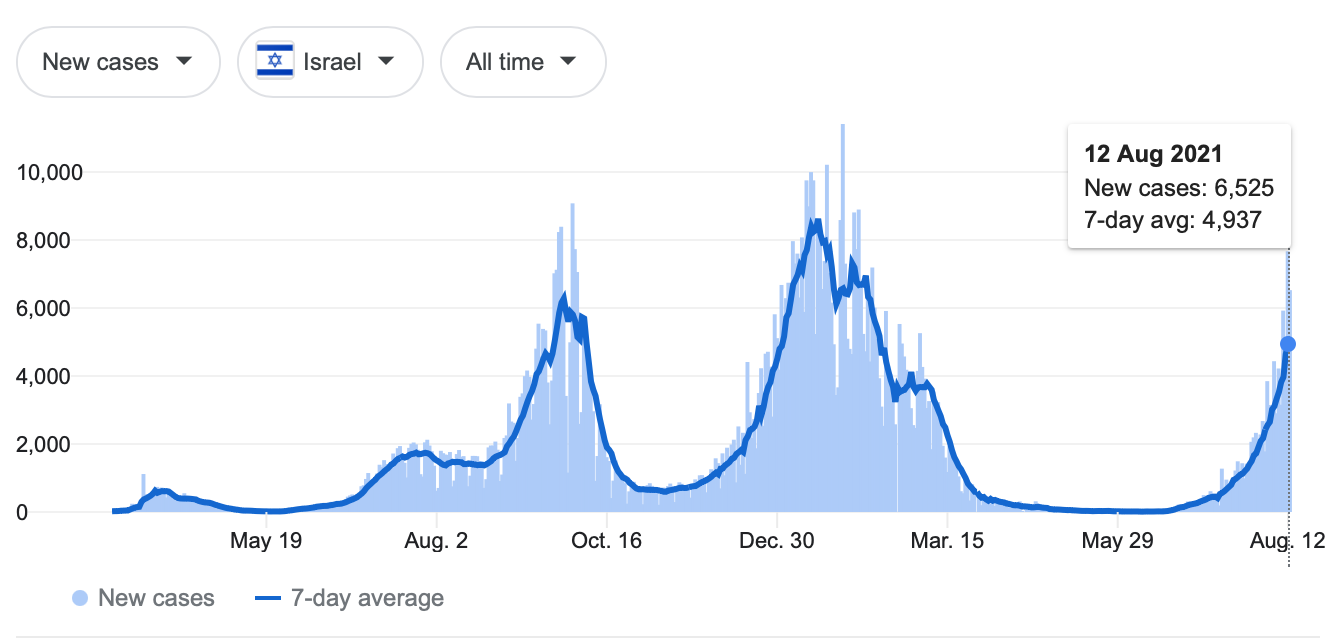Booster Shots Getting Regulatory Approval As Data Shows Protection Lasts Up To 8 Months
Friday August 13th, 2021
- Israel, the first country to mass vaccinate its population, is starting to see a rise in COVID cases and has already approved a booster shot for those aged 50 and up
- Studies show that immunity from vaccines can last up to 8 months
- Since the start of vaccine rollout, the 8-month mark is right around the corner and approval of booster shots in other parts of the world has already begun
Since the start of the COVID pandemic, data regarding case prevalence and fatality have been closely tracked. Only in the past several months since vaccine rollout began, has data regarding vaccine efficacy and longevity been collected. The data shows that immunity doesn’t last forever.
In this article we are going to look at Israel, one of the first countries to mass vaccinate its population and see how immunity has progressed over time. By March 2020, over 52% of the eligible Israeli population had received at least 1 vaccine dose and nearly 40% had been fully vaccinated.

Fast forward 5 months and there are reports out of Israel that vaccine efficacy is starting to wane. What was once 91% effective against severe illness after two doses, the Pfizer shot is now only 39% effective, according to Israeli data. Though the data claims that vaccines still protect against severe illness, Israel is already discussing the idea of widespread booster shots. The country recently approved booster shots for Israeli’s aged 50 and up. It seems only a matter of time before all Israeli adults will be approved for boosters.
Data Demonstrating Waning Vaccine Efficacy
A clinical study by Nature shows data that is in line with this info. It looked at 162 COVID symptomatic patients and found that neutralizing antibody response lasts up to 8 months.
It found that antibodies in infected individuals usually appear within the first 3 weeks after symptom onset. Specifically, IgG, a type of antibody, was found in 95% of COVID patients by the fourth week of symptom onset. IgG levels continued to rise until about three months after discharge from the hospital.
It is important to note the positive relationship between certain antibodies and COVID prognosis. The Nature study found that early presence of IgG and IgA (another type of antibody), are positively correlated with virus control and increased patient survival. Though neutralizing antibodies progressively drop after 5-8 weeks, they were still detectable for up to 8 months in the large majority of recovered patients.
Not only is immunity starting to wane, but the rise in variants is also a cause for concern. The delta variant, already present in over 100 countries, has shown lowered efficacy in fully vaccinated individuals. One study found that with one shot of either Pfizer or AstraZeneca, vaccine efficacy went down to 30%. With two shots of Pfizer, efficacy was 88% and two shots of AstraZeneca it was 67%.

Being the first country to mass vaccinate, Israel will be a leader in showing the world just how much booster shots will be needed. The country is nearing the 8-month mark and not surprisingly, already has reports about diminishing antibodies, waning protection and the need for boosters.
Discussion regarding third doses have already begun in certain countries like the US, UK and Germany. The FDA already approved a third dose for those with compromised immune systems. Though this booster shot will be limited to the 2.7% of Americans estimated to be immunocompromised, health officials confirm that healthy, fully vaccinated individuals are adequately protected against hospitalization and death.
Yet, many do not want to take any chances with the increase in virus variants and have snuck getting a third shot. By using fake names or identification not linked to their original profiles, hundreds of people have gotten a third dose, though the exact number is hard to track.

Cases are starting to peak again and should continue as vaccine protection wears off and virus variants are on the rise. The US and other wealthier, highly vaccinated countries were about 3-4 months behind Israel in their vaccine rollout, meaning we should expect similar reports coming out of the West towards the end of the year.
The positive relationship between the early presence of neutralizing antibodies and better prognosis should be further explored. This relationship supports prophylactic vaccination but also brings up the idea of monoclonal antibodies (mAb). Introducing mAb at an early stage plays on the positive relationship mentioned above and can thus, lead to better patient survival and virus control. One thing is for certain though: boosters are coming.


